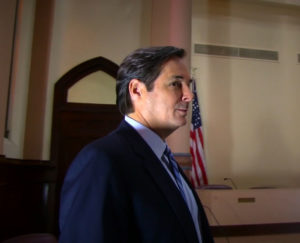In Allentown, PA, only certain eligible family members can benefit from a wrongful death lawsuit. These are the deceased person’s surviving spouse, children, or parents. In theory, these people were most likely to have been financially or otherwise reliant on the deceased person. Hence, they are eligible to receive damages in a wrongful death lawsuit. These are the first people eligible to file a wrongful death lawsuit or survival claim.
you have lost a loved one and have questions about your wrongful death case, don’t hesitate to contact an experienced Allentown wrongful death lawyer at Munley Law.
What is a Wrongful Death Claim?

Some common types of wrongful death claims in Allentown include:
- Drunk driving accidents
- Motorcycle accidents
- Medical malpractice
- Assault
- Slip and fall accidents
- Workplace accidents
- And more fatal accidents
Who Can File A Wrongful Death Claim?
As mentioned earlier,
The law generally dictates that in Pennsylvania, the first people eligible to file are the immediate surviving family members. Learn more about who can file a wrongful death claim in Allentown. Typically, these are the only people who can receive damages from a wrongful death in Pennsylvania.
However, there are cases in which the decedent has not left behind a spouse, child, or parent. In a case like this, the personal representative of the deceased’s estate may file. This personal representative is typically a close family member named in the deceased person’s will. If the deceased person does not have a will, a family member can volunteer to act as the representative, or the court can appoint someone.
Additionally, suppose the personal representative and immediate family members do not file a wrongful death lawsuit in Pennsylvania within six months of the death. In that case, other beneficiaries are then entitled to file a suit. This may include more distant family members.
Why File a Wrongful Death Claim?
In personal injury claims that do not involve a fatality, the victim may choose to seek financial compensation and justice for themselves by filing a lawsuit. They can advocate for themselves and seek justice for their suffering. But, of course, if the victim of an accident loses their life, they have no means to advocate on their behalf.
In cases like this, the surviving family members of the victim may choose to file a wrongful death claim with the insurance company. While, of course, nothing can undo the family’s pain, wrongful death claims can be a tool to hold the negligent party accountable. What’s more, in addition to the emotional distress a death puts a family through, it can also cause an enormous financial burden.
Expenses such as funeral and medical costs can be overwhelming, and understanding how insurance plays a part in Allentown wrongful death cases is crucial. Filing a wrongful death lawsuit means that the family can at least rest assured that their financial burden has been eased, taking just one small weight off their shoulders.
Wrongful death claims are intended to compensate the decedent’s family for what they’ve lost. Another type of claim has a slightly different purpose and is utilized to recoup the deceased’s estate for the losses it has incurred. This type of claim typically applies in situations where the victim was injured but survived and then succumbed to their injuries later on.
If you’re unsure whether you have the right to file a wrongful death claim or what type of claim you should file, don’t hesitate to contact an Allentown wrongful death attorney. The wrongful death lawyers at Munley Law are experts in this subject matter and are ready and waiting to advocate for you.
What Wrongful Death Damages Are Available?

Economic Damages
Economic damages are measurable losses and expenses. Perhaps the deceased party required a great deal of medical care after the accident and before their death, resulting in the family being left with a stack of bills for medical expenses. Perhaps the deceased party was the family’s main provider; without them, the family is struggling financially. Funeral costs and related funeral expenses can also be shockingly steep. These losses- medical expenses, lost wages, funeral costs- have a clear, non-negotiable value.
Non-Economic Damages
Non-economic damages are not measurable in the way economic damages are. They account for more abstract but still entirely devastating losses, such as pain and suffering, emotional distress, loss of companionship, and more. A wrongful death lawyer assesses all these losses and assigns a dollar value, even for things that don’t have a clear monetary worth.
Punitive Damages
In most wrongful death lawsuits, the claimants seek the damages listed above. However, in some cases, this third type of damage comes into play. While economic and non-economic damages are intended to recoup the family for their losses, punitive damages are intended to punish the defendant and dissuade them and others from exhibiting the same negligent behavior. These damages are only awarded in particularly reckless or negligent wrongful death claims.
How Long Do You Have To File a Wrongful Death Lawsuit?
Allentown wrongful death claims have a statute of limitations or a deadline for when the family has to file the lawsuit. Pennsylvania’s statute of limitations for all personal injury cases is two years. This means the family member has two years to file their wrongful death claim. After two years, the family may lose the ability to recover damages, so don’t delay choosing wrongful death lawyers.
For this reason, it’s important to move fairly quickly in wrongful death claims. Working with an experienced wrongful death attorney is a great way to ensure you meet all deadlines and don’t forfeit your right to financial compensation.
How Can You Prove Wrongful Death Claims?
Wrongful death lawsuits require the claimant to prove negligence. It’s not necessary to prove that the death occurred as the result of an intentional act — intentionality does not matter. What matters is proving that the at-fault party acted negligently or recklessly. Think about fatal drunk driving accidents: the drunk driver has no active intention of harming anyone, but their negligent and reckless behavior (in this case, getting behind the wheel drunk) still caused a death, even though it was not an intentional act.
There are four key elements of proving negligence in wrongful death claims:
- The defendant owed a duty of care to the victim. All drivers, including pedestrians, owe a duty of care. They must drive safely and responsibly and refrain from any behavior that could put their own lives or the lives of others in danger.
- The defendant breached this duty of care. Drivers breach their duty of care if they get behind the wheel drunk or drive recklessly. This endangers everyone around them and is a clear breach of their responsibility.
- This breach of care caused the death. In the case of a wrongful death, the claimant’s wrongful death lawyer would prove that the defendant’s negligent or reckless behavior directly caused the victim’s death. For instance, the defendant driving drunk caused the accident, which caused the victim to lose their life.
- This death resulted in damages. Wrongful death claims are specifically about seeking damages, so the last element is to show that the victim losing their life resulted in economic and non-economic losses for the family. This might include funeral costs, medical expenses, lost wages, etc.
Working With a Wrongful Death Lawyer in Allentown
If you have lost a family member to someone else’s negligence, do not hesitate to contact Munley Law for a skilled wrongful death lawyer. We handle all personal injury cases with the grace, care, and compassion they deserve, and we have the skills and resources these cases require. We will guide you through every step of the legal process and fight tirelessly to hold the responsible party accountable.
Don’t wait: contact us today to learn how we can protect your interests.
Reviewed by Bernadine Munley, Esq., Personal Injury Attorney at Munley Law, on May 30, 2025.
Munley Law Personal Injury Attorneys
609 Hamilton St.
Allentown, PA 18101
(610) 857-7424
Get Directions









